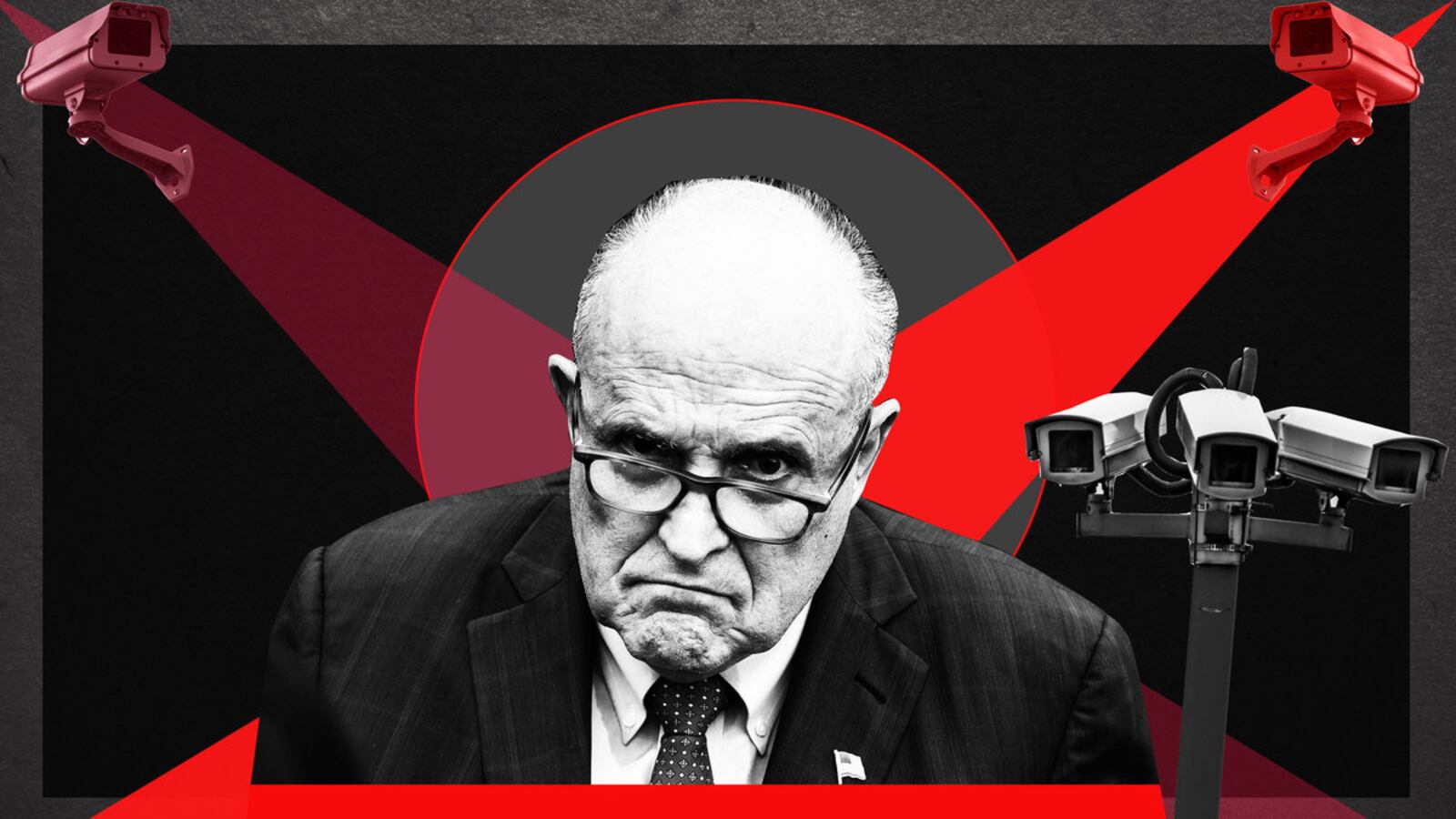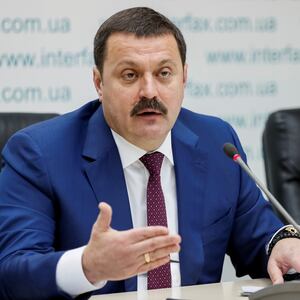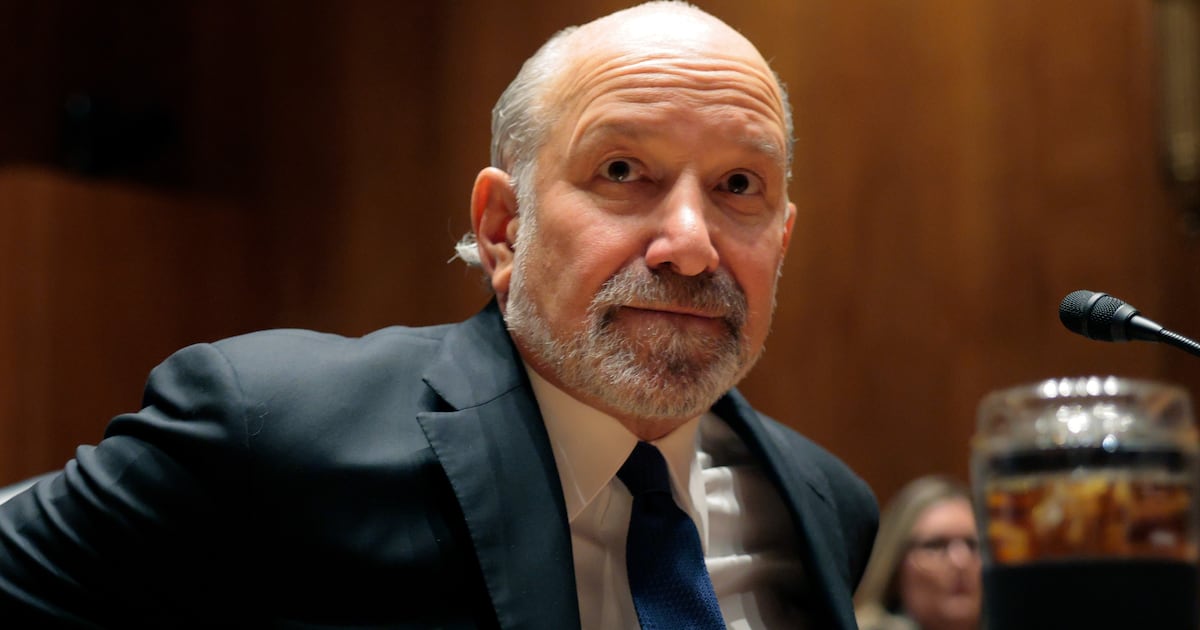As the feds expand their probe into Rudy Giuliani, investigators have homed in on Giuliani Security & Safety, a consulting firm that has done business with various governments and organizations around the world, according to two people briefed on the matter and another source familiar with the situation.
In recent months, the investigators have asked questions about and examined documents related to Giuliani Security & Safety (GSS). Their interest comes at a time when the feds have ramped up their scrutiny of Giuliani’s work, including his Ukraine-related efforts, to determine whether or not the former New York City mayor engaged in unregistered and illegal lobbying on behalf of foreign figures. Giuliani has repeatedly denied engaging in any unregistered lobbying or committing any FARA violations, and so far no charges have been brought against him in this matter.
It is unclear exactly why federal investigators have been taking a look at Giuliani’s security and consulting business. However, during the first year of the Trump administration, Giuliani Security & Safety was hired by the Ukrainian city of Kharkiv. The deal was reportedly the result of the local influence of the Ukrainian-Russian real estate developer Pavel Fuks, an ally of the town’s Moscow-friendly mayor. Fuks was previously engaged in negotiations to construct the never-realized Trump Tower Moscow.
A 2018 press release purported that the firm was working to establish a Kharkiv Office of Emergency Management modeled on New York City’s. But in an interview with the New York Times, Fuks characterized Giuliani’s role as that of a “lobbyist.” Giuliani has disputed this description, but the deal subsequently drew criticism as the lawyer gallivanted about Eastern Europe attempting to prop up conspiracy theories about now-President Joe Biden’s son, Hunter.
Giuliani has insisted that the work in Ukraine was all done on behalf of his client, then-President Donald Trump, and therefore could not have been part of a foreign lobbying effort. The extension of the federal investigation into Giuliani Security & Safety, with its numerous foreign clients, could complicate that assertion.
What’s more, Trump himself has been unwilling to publicly back up Giuliani’s claim; in private, the former president has said in recent weeks that he’s hesitant to get involved, largely because he didn’t always know what Giuliani was up to during the Trump-Ukraine scandal.
That work—and his overseas operations, more generally—drew frequent criticism from his detractors, as well as Democrats on Capitol Hill, who expressed concern that governments were trying to do business with Trump’s personal attorney as a way to surreptitiously influence U.S. policy.
In May 2019, when Giuliani, then repping Trump, told The Daily Beast that he and GSS had landed a contract with the Kingdom of Bahrain’s Ministry of Interior to train its police, he emphasized that the work “doesn’t involve any lobbying,” and does not include “giving policy advice.”
“[Our GSS] contract has clauses in it that say no lobbying, no foreign representation,” the Trump attorney added. Giuliani said at the time that he could provide The Daily Beast with a copy of the contract to corroborate this, but ultimately never sent along a copy.
Giuliani’s lawyers did not respond to multiple requests for comment on this story. A spokesperson for the U.S. Attorney’s Office in the Southern District of New York declined The Daily Beast’s request for comment. Various former and current members of Giuliani Partners, which is the controlling entity that includes GSS, did not respond to inquiries from The Daily Beast, or declined to comment on the record.
In late April, federal authorities in New York raided Giuliani’s office and apartment, seizing a trove of electronic devices. Giuliani and his legal team subsequently claimed that the U.S. Attorney’s office had informed them that the feds had already secretly seized communications and documents from Giuliani’s iCloud account, all the way back in 2019.
The global security and consulting firm has been a key part of Giuliani’s money-making enterprise, long before President Trump came along. Giuliani launched his eponymous group, Giuliani Partners, in January 2002, near the peak of his post-9/11 acclaim as “America’s mayor.” The subsidiary, Giuliani Security & Safety, came into being 10 months later.
Controversy attended the mayor’s new career as a consultant from almost the start. One of his partners in the new business, ex-NYPD Commissioner Bernard Kerik, came under scrutiny when then-President George W. Bush nominated Kerik to head the Department of Homeland Security. It emerged first that Kerik had employed an undocumented housekeeper, kneecapping his confirmation, and later that he had lied to Congress and tax authorities and had received unreported and unauthorized payments.
Nonetheless, Giuliani acquired powerful clients such as Oxycontin maker Purdue Pharma and energy giant TransCanada, the company behind the controversial Keystone Pipeline project. He even moved into investment banking in 2004, when Giuliani Partners purchased a corporate finance entity from Ernst & Young and renamed it Giuliani Capital Partners. The former mayor resold that entity in early 2007, as he prepared to run for president.
But it was Giuliani Security & Safety that attracted the most unwanted attention during the Republican’s failed bid for the 2008 GOP nomination—particularly over its contracts with the government of Qatar, which had brought the self-styled anti-terrorism crusader into cooperation with an al Qaeda-linked member of the Gulf state’s royal family. The Chicago Tribune also reported that the mayor’s business was entangled in the development of a Singapore casino with the son of a gambling mogul tied to the regime in North Korea.
In interviews, Giuliani huffily refused to disclose all his clients, even as he insisted on the absolute uprightness of all his corporate affairs.
"Everything I did at Giuliani Partners was totally legal, totally ethical," he told the Associated Press during the failed campaign. "There's nothing for me to explain about. We acted honorably, decently.”
The ex-mayor maintained his relationship with the Qataris even after his presidential hopes withered and his ambition to join the Trump administration died. As late as April 2018—just weeks before he became Trump’s personal lawyer—Giuliani was photographed accompanying the Emir of Qatar, Sheikh Tamim bin Hamad al-Thani, during his visit to Miami. He would later claim he had completed a contract with the country’s government and visited its capital of Doha around that time.
—With additional reporting by Adam Rawnsley








